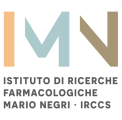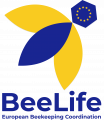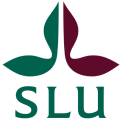Established in 1928, Aarhus University has since developed into a major Danish university with a strong international reputation across the entire research spectrum.
The main campus of Aarhus University (AU) is located in the middle of Aarhus. Rooted in strong disciplines, researchers and students have been generating new knowledge here for over 90 years. Aarhus University is Denmark’s second-largest university, with 38,000 students, five faculties, research activities all over the country and campuses in Aarhus, Herning and Emdrup.
Aarhus University's Social Ecological Systems Simulation Centre (SESS), a part of the Department of Ecoscience, leads the PollinERA project. Professor Christopher John Topping is the project coordinator, as well as the SESS centre leader. The SESS centre is a pioneering, multi-disciplinary team consisting of programmers, engineers, geographers, biologists and social scientists, all working closely together to improve our understanding of social-ecological systems. Through a variety of European (H2020, HE, EFSA) as well as national (Danish EPA, ORG RDD, German EPA) research projects, SESS has gained extensive experience in the development of simulation as a tool to explore the implications of management decisions on the environmental, societal and economic aspects of managed systems. This includes developing modelling for honey bees for European regulatory risk assessment of pesticides and developing a roadmap to advance the environmental risk assessment of chemical pesticides for insect pollinators. The Animal Landscape and Man Simulation System, is a major component within SESS, providing an integrated framework for the simulation of landscapes, farming and physical-chemical environment. It is based on 25 years of research and development, steered by Prof. Topping, and supported by transdisciplinary expertise and knowledge built-up by SESS team researchers. The SESS team is mainly involved in PollinERA pollinator modelling (WP3), development of systems approach for pollinator environmental risk assessment, including stakeholder activities (WP5), project management (WP7), as well as supporting developments regarding predictive activities (WP2), and communication, dissemination and exploitation activities (WP6).
The SESS team is mainly involved in PollinERA pollinator modelling (WP3), development of systems approach for pollinator environmental risk assessment, including stakeholder activities (WP5), project management (WP7), as well as supporting developments regarding predictive toxicology (WP2), and communication, dissemination and exploitation activities (WP6).






